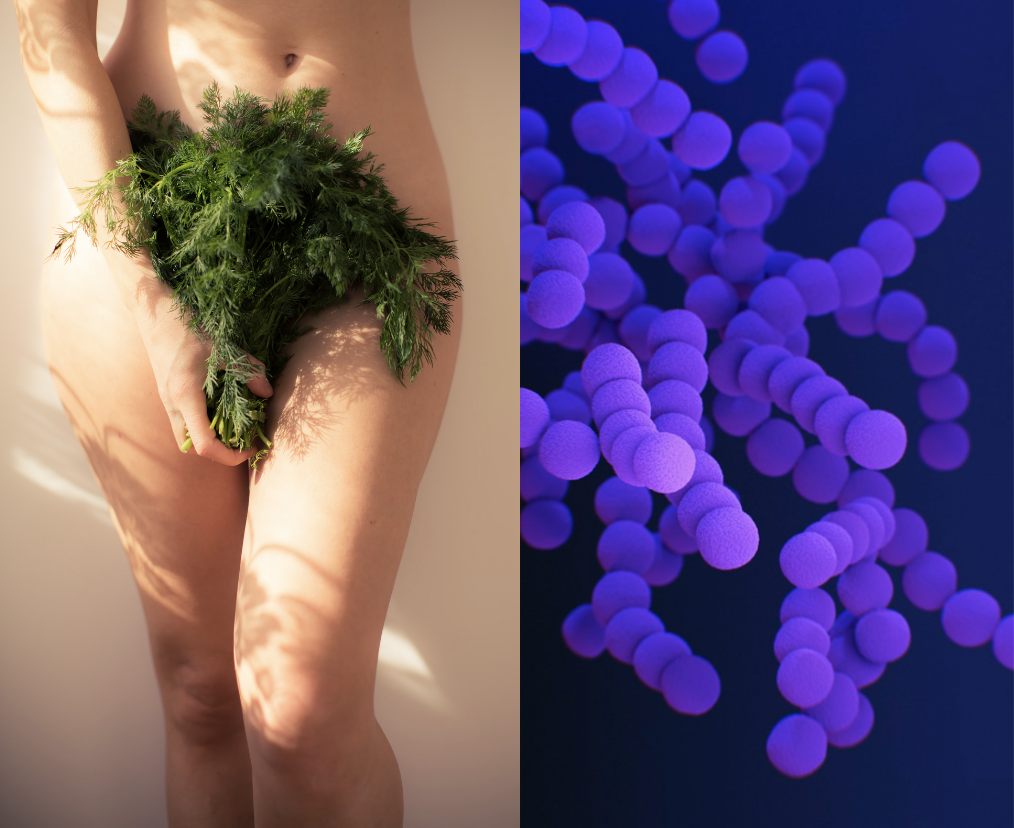What is Group B Strep And How Will It Affect My Birth? – A holistic approach
Navigating Group B Streptococcus (GBS) and Holistic Approaches During Pregnancy
As holistic-minded mothers, we often seek natural treatments that align with our values and preferences. When it comes to addressing ailments or other infections, you might be interested in the herbal protocols. It’s essential to approach these treatments with care and proper understanding.One crucial aspect that often comes up is Group B Streptococcus (GBS), a bacterium that can naturally inhabit the digestive and genital areas of some pregnant women. While GBS typically doesn’t pose an immediate threat, it’s vital to explore both medical and natural approaches to ensure a healthy pregnancy and childbirth.
Understanding Group B Streptococcus (GBS)
Before we check out natural treatments, let’s get acquainted with GBS and its potential impact during pregnancy and birth.
The Bacterial World: Bacteria are ubiquitous microorganisms with diverse roles in our environment. Intriguingly, they also play a part in our bodies’ ecosystem.
Our Bacterial Residents: Our bodies are home to a vast community of bacteria, some beneficial, some harmful, and others residing in a harmonious balance. This equilibrium can shift under various circumstances, emphasising the complexity of this relationship.
Friendly Bacteria: Consider friendly bacteria like Bifidobacterium bifidum, which aids digestion and contributes to yogurt production. These bacteria not only support our well-being but also maintain mutually beneficial partnerships with us. Disruptions to these friendly bacteria, often due to antibiotics, can lead to issues such as fungal infections like thrush.
Less-Friendly Bacteria: On the flip side, there are bacteria, like those responsible for illnesses such as E. coli, diphtheria, or whooping cough, that can be harmful. These bacteria act as parasites, thriving at our expense, and are classified as pathogens due to their potential to cause diseases.
GBS and Commensalism: Now, let’s focus on Group B Streptococcus (GBS), which is considered a commensal bacterium. GBS typically resides in the gut and/or vagina of approximately one-fifth to one-quarter of women in the UK.
Natural Approaches to Address GBS and Infections
As holistic-minded expectant mothers, it’s natural to seek natural treatments and preventive measures that align with our values. Here, we explore a range of holistic approaches, along with medical insights, to manage GBS during pregnancy.
The information provided in this article outlines various natural remedies and holistic approaches to address Group B Streptococcus (GBS) during pregnancy. It’s essential to remember that these remedies are discussed for informational purposes and may not be suitable or safe for everyone.
Before embarking on any natural treatment or supplement regimen during pregnancy, it is crucial to consult with a qualified healthcare professional. Every pregnancy is unique, and what works for one person may not be appropriate for another. Individual health conditions, allergies, sensitivities, and medical histories must be taken into account when considering natural remedies.
Additionally, the safety and efficacy of natural remedies can vary, and not all remedies have undergone rigorous scientific testing. Therefore, it’s essential to approach natural treatments with caution and informed decision-making.
Vaginal Douching: Properly performed douching can be a natural way to address GBS and other infections. Here’s a step-by-step guide on how to do it safely:
- Find a comfortable place, like your bath with a towel to lie on.
- Use pillows to elevate your hips, helping the liquid pool inside.
- Ensure that the douche tip is not inserted into the cervix.
- Gradually release the fluid while keeping your labia (vaginal lips) closed with your fingers around the tip of the bag or bottle.
- This will allow the vaginal tissues to expand, ensuring the fluid washes over all mucosa (mucous membranes inside).
You can use a peri-squirt bottle or a douche bag for this purpose. Here are some recommended solutions:
- Hibiscens Douche: Mix 2 tablespoons of Hibiscens with 20 oz of tempered water. Use this mixture every 6 hours after labor has begun.
- Goldenseal Tincture Douche: Combine ½ teaspoon of goldenseal tincture with 2 cups of tempered water. Use this solution once per day for one week before labor begins.
- Cider Vinegar Douche: Mix ¼ cup of cider vinegar with 16 oz of tempered water. Use this mixture once per day for one week before labor begins.
- Hydrogen Peroxide Douche: Combine 3 tablespoons of hydrogen peroxide with 20 oz of tempered water. Use this mixture once per day for one week before labour begins.
Herbs for Vaginal Insertion at Bedtime: Starting at 36 weeks, you can consider inserting specific herbs into the vaginal opening at bedtime. Here are some options:
- Lactobacillus: Use 2 gelatin capsules of Lactobacillus for 1-2 weeks or until labour begins.
- Garlic: Use 2 gelatin capsules of Garlic for 1-2 weeks or until labour begins.
- Tea Tree Oil: Soak a cotton ball or small cotton tampon in a 50-50 blend of tea tree oil and olive oil. Insert this blend every other night and remove it in the morning (use a 25-75 blend if the 50-50 blend is too irritating).
- Essential Oil Blend: Mix 2 drops each of Lemon, Oregano, and Mountain Savoury essential oils and place them in a gelatin capsule. Use this blend for 1-2 weeks.
Oral Herbal Supplements for GBS and Immune Support: Starting at 36 weeks and throughout your pregnancy, consider these herbal supplements:
- Oregon Grape Root: Take 2 gelatin capsules of Oregon Grape Root twice daily for 2 weeks.
- Bee Propolis: Consume Bee Propolis four times daily (start slowly if you have allergies) for 2-4 weeks.
- Echinacea Tea: Drink 2 cups of Echinacea tea daily for 2 weeks.
- Vitamin C: Consume 500 mg of Vitamin C every 4 waking hours for 2-3 days.
- EHB: Take six capsules of EHB daily for 10 days.
- Echinacea & Astragalus Tinctures: Use ½ teaspoon of each tincture twice daily.
- Garlic Elixir: Blend ½ cup of honey, ¼ cup of apple cider vinegar, and ½ bulb of raw garlic (approximately 6 cloves) until it becomes liquid. Take ½ teaspoon of this elixir twice daily.
Continuous Immune Support: Throughout your pregnancy, maintain your immune system and infection-fighting capabilities with these practices:
- Take 3 Acidophilus capsules four times per day.
- Consume 4 Garlic capsules four times per day.
- Use 1-2 teaspoons of Colloidal Silver three times daily.
- Include 1-2 capsules of Maga-Dophilus with each meal every day of your pregnancy.
- Garlic Elixir: Create a garlic elixir by blending ½ cup honey, ¼ cup apple cider vinegar, and ½ bulb of raw garlic (approximately 6 cloves) until it becomes liquid. Take ½ teaspoon of this elixir twice daily.
Understanding the Risk for Babies: GBS and Your Newborn
Now, let’s explore the potential impact of GBS on your newborn.
When a pregnant woman carries GBS and gives birth, there’s a possibility that the GBS bacteria can be transmitted to her baby during labour and birth. In most cases, this doesn’t cause any issues, and many babies born to GBS-carrying mothers are perfectly healthy. However, there are instances when a newborn exposed to GBS during birth may become very poorly indeed.
The exact transmission route of early-onset GBS (EOGBS) disease is still not fully understood. While it’s commonly believed that GBS is passed from mum to the baby, recent research suggests that other family members or healthcare workers may also play a role in transmission but not surprisingly there is little research into this theory . EOGBS disease typically occurs during the first week of a baby’s life, with 90% of cases starting within the first 24 hours. It’s more common in babies born prematurely, small babies, or babies whose mothers’ water broke more than 12 hours before giving birth. EOGBS disease is almost exclusively seen in babies born to women who already carry GBS bacteria.
Symptoms of EOGBS disease in babies include fever, feeding difficulties, straining noises, irritability, lethargy, trouble breathing, or a blue skin colour. GBS disease can progress rapidly, leading to conditions like blood infection or meningitis.
The risk of early-onset GBS (EOGBS) disease for babies can vary depending on several factors. Initially, if no preventive measures were taken, EOGBS disease could affect between 1 in 250 to 1 in 2500 babies. In the UK in 2013, it was estimated to impact 1 in 2000 babies, with 7 out of 10 diagnosed babies recovering fully, 2 out of 10 experiencing some level of disability, and 1 out of 10 sadly not surviving. However, updated data from 2019 shows that the incidence of EOGBS disease in the UK had increased slightly (0.57 in 1000 babies in 2015), but the risk of death had decreased significantly (from 10.6% to 5.2%). Now, approximately 1 in 1750 babies in the UK are diagnosed with EOGBS disease, and the chance of death from it is 1 in 33,738. About 7.4% of babies with EOGBS disease may recover but have ongoing health issues. The risk also varies for babies born prematurely, highlighting the importance of considering individual factors when assessing EOGBS risk. The current risk-based screening approach aims to prevent EOGBS disease but may require intravenous antibiotics for approximately 2190 women in labor to prevent one case of death or serious morbidity from EOGBS disease (Bevan et al., 2019).
Treatment – Understanding the Effectiveness of Antibiotics: What We Know
Many holistic-minded mothers facing Group B Streptococcus (GBS) during pregnancy often ask a crucial question: are antibiotics effective in preventing early-onset GBS (EOGBS) disease in newborns? The answer, like the complex interplay of holistic health, is not straightforward due to limited research data.
While antibiotics are routinely offered to women considered at risk of EOGBS disease, their true effectiveness remains a matter of ongoing discussion and exploration. Unlike holistic approaches deeply rooted in natural remedies and the reason for illness, the medical realm often relies on large-scale, high-quality randomised controlled trials (RCTs) to establish conclusive evidence.
Yet, conducting RCTs for EOGBS disease prevention presents unique challenges. EOGBS disease is relatively rare, making it challenging to gather a substantial sample size for these trials. As holistic mothers appreciate the importance of individualised care and mindful decision-making, it’s essential to recognise that the choice to use antibiotics involves considerations beyond medical efficacy.
Incorporating antibiotics into your pregnancy journey involves a delicate balance between holistic ideals and medical interventions. Understanding the limitations of research data and considering your own cultural perspectives on health and safety can guide you in making the most informed decisions for your unique pregnancy experience. Below are some questions you can ask your healthcare provider in order for you to make an informed decision.
- Exploring Risk and Benefit
- “Can you help me understand the specific risks and benefits of antibiotic use for preventing EOGBS disease? I want to ensure the choice aligns with my holistic approach to pregnancy.”
- Evidence-Based Approach
- “I’m curious if there’s robust scientific evidence supporting antibiotics for EOGBS prevention in cases like mine. Can you share any data that highlights its effectiveness?”
- Alternative Strategies
- “I’m interested in exploring a holistic approach alongside antibiotics. Are there non-pharmacological strategies that could complement antibiotic use and enhance their effectiveness?”
- Concerns About Side Effects
- “Could you provide insights into potential side effects, particularly how antibiotics may impact my gut microbiome? I’m committed to maintaining a healthy balance during my pregnancy.”
- Tailored to My Risk Profile
- “Let’s consider my individual risk factors for EOGBS transmission. Can we personalise the approach to ensure it’s aligned with my unique circumstances and preferences?”
- A Personalised Plan
- “I value a pregnancy plan that respects my health history and choices. Can we work together to create a customised approach to EOGBS prevention that feels right for me?”
- Contingency Planning
- “In the event I choose not to proceed with antibiotics, can we discuss contingency measures should EOGBS transmission become a concern during labour? I want to be prepared.”
- Monitoring for Effectiveness
- “As we consider antibiotics, what criteria will we use to assess their effectiveness, and what steps will we take if they don’t meet our expectations?”
- Holistic Complement
- “Are there natural supplements or holistic practices that can complement antibiotics, supporting not only EOGBS prevention but also my overall well-being throughout pregnancy?”
- Understanding Legal Aspects
- “I’d like to understand any legal considerations related to my decision regarding antibiotics for EOGBS prevention. Can you provide insights in this regard?”
A balanced approach that combines holistic practices with medical insights can empower expectant mothers to make informed decisions that prioritise their well-being and their baby’s health.
If you would like to learn more about GBS I highly recommend Group B Strep Explained by Dr Sara Wickham . There is no one else who knows more about the topic than Sara!
For Expectant Parents: Our Home Study Antenatal Course
Are you preparing to welcome a new life into the world? Enrol in our Home Study Antenatal Course, meticulously crafted for expectant parents like you. This course offers a deep dive into the birthing process, equipping you with knowledge, confidence, and the tools to navigate your pregnancy and childbirth journey with empowerment and ease.
For Aspiring Birth Professionals: Our Accredited and Certified Doula Course
If your calling is to support and guide women through the transformative experience of childbirth, our accredited and certified Doula Course is your gateway. This comprehensive program provides in-depth training, practical skills, and the latest insights in birth support, preparing you for a fulfilling career as a certified doula.
https://whenpushcomestoshove.co.uk/courses/doula-training/https://whenpushcomestoshove.co.uk/courses/doula-training/Get 10% off our courses by using code BLOG10







